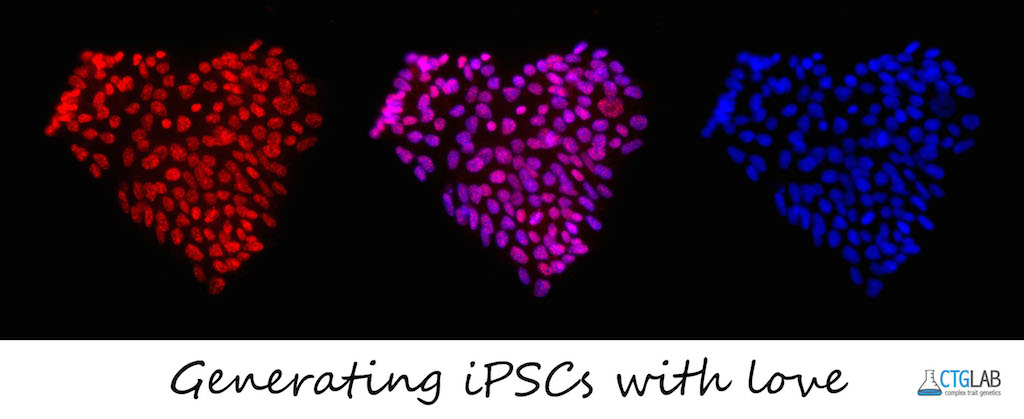iPSCs for Complex Traits
Gene detection is only the first step in understanding the biology of complex traits. A statistically significant disease – gene association generates hypotheses that need to be tested in vitro for functional validation. That is, we need to show how genetic differences lead to a measurable phenotypic effect that is relevant for the disorder.
Functional validation in the context of polygenic, complex disorders is complicated as GWAS hits do not directly provide action points for subsequent functional validation analyses. That is because GWAS hits are typically in non-coding regions of genes or not in genes at all, or serve as proxies for other, unmeasured functional variants. In addition, their effects tend to be small and typically hundreds of variants are important for a disease. Therefore, classic methods from functional genomics, such as knock-out mouse models or protein-protein interactions are far from optimal as they will become too time-consuming.
The advent of induced pluripotent stem cells (iPSCs) has provided a higly promising tool for investigating human disorders which seems especially well suited to deal with the polygenic nature of complex disorders.
In iPSC studies fibroblast cells taken from patients are reprogrammed into specialized cells of interest. This allows studying cellular effects in specific subtypes of cells. Importantly, by utilizing cells from patients with a targeted set of risk alleles, one naturally also captures the complete genetic background of an individual, which includes possible genetic modifiers that are currently unknown. In addition, iPSC studies allow for drug screening as pharmacological assays can be applied in vitro, and facilitate temporal analysis of disease initiation and progression, as cell characteristics can be measured at various stages of reprogramming.
CTG lab uses findings from GWAS studies to select the most informative patients for iPSC experiments, In addition, biological pathway analyses guides selection of subsequent functional assays. Generation of iPSC derived nerve cells is carried out by the VU stem cell lab (dr Vivi Heine). Functional assaying is done in collaboration with several different research teams at the CNCR.
Our current projects include cell-lines from schizophrenia patients and controls (in collaboration with the Karolinska Institutet, Stockholm) and RETT patients and controls.
Heart-shaped iPSC derived cell colonies as photographed by Lisa Hinz
